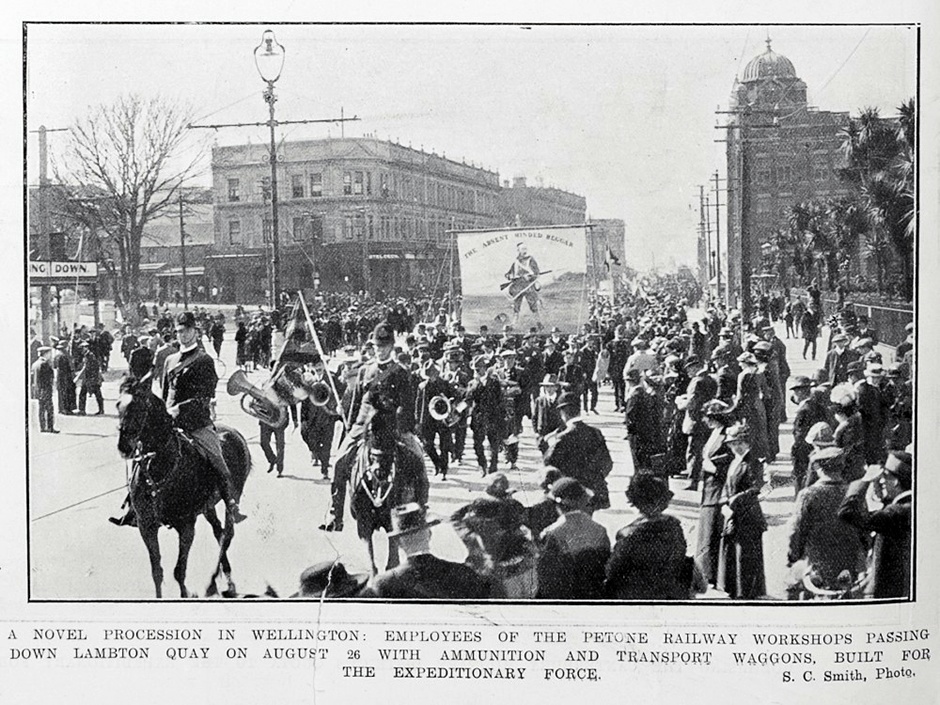
Staff of the Petone Railway Workshops march along Lambton Quay, Wellington, on 26 August 1914 to deliver 40 newly manufactured ammunition and transport carts to the wharves for the Main Body of the New Zealand Expeditionary Force.
The large banner, which also appears in photographs of the 1916 Anzac Day ceremony at Petone, depicts a soldier and carries the words ‘The absent minded beggar’, referring to an 1899 poem by Rudyard Kipling. Set to music by Sir Arthur Sullivan, this became famous throughout the British Empire during the South African War (1899-1902) as a patriotic fundraising song. The men in the march also carry smaller banners reading ‘From Petone to Potsdam’, ‘Not made in Germany’ and ‘Be British: don't forget the collection’.
Throughout the First World War the large workforce of the Railways Department was heavily involved in fundraising and relief efforts in support of their workmates serving overseas, Belgian refugees and other patriotic causes. In April-May 1916, for example, New Plymouth railwaymen organised an 'art union' (lottery) and concert that raised £830 (equivalent to more than $110,000 in 2015) for the Wounded Soldiers' Fund. By July that year the staff of Dunedin's Hillside Workshops had reportedly raised £2800 ($360,000) for various patriotic funds.

Community contributions